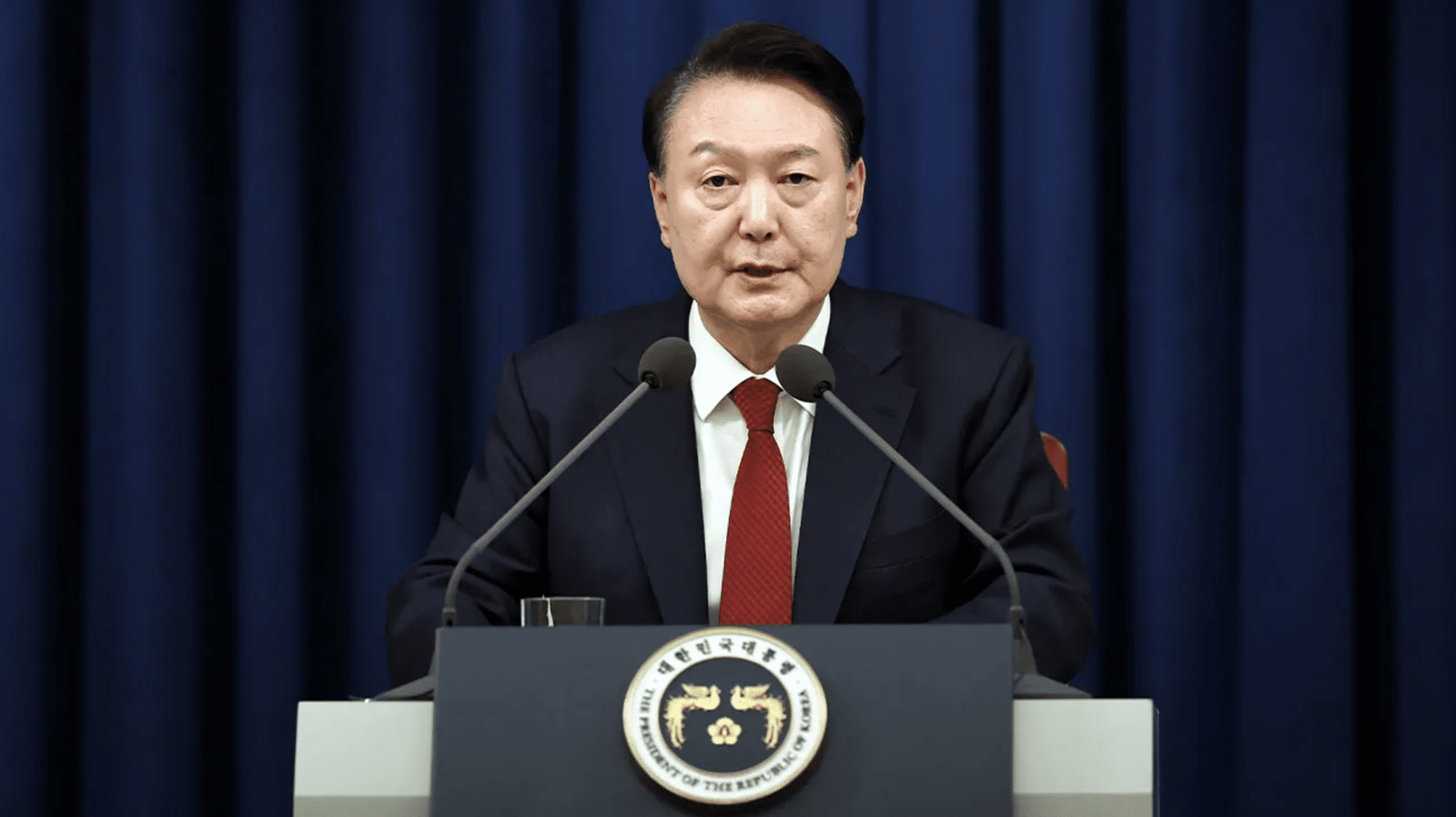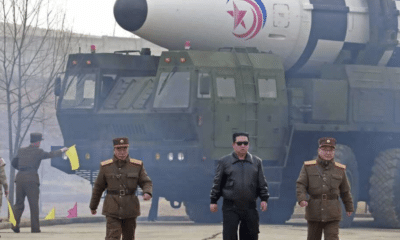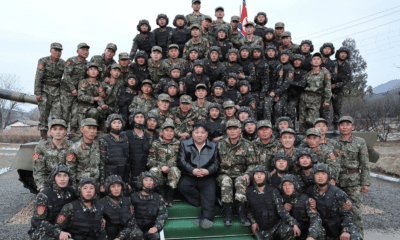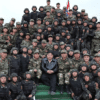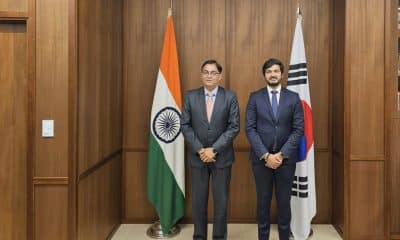Democracy
South Korea’s President Yoon Declares Emergency Martial Law Amid Political Unrest
In an unprecedented move, South Korea’s President Yoon Suk-yeol declared emergency martial law, accusing opposition groups of engaging in antistate activities. The announcement, made during a late-night televised address, has sent shockwaves through the nation, with significant political and social implications. The declaration comes amidst escalating tensions in the country, fueled by a standoff between the ruling conservative People Power Party and the opposition-controlled National Assembly.
President Yoon’s decision to impose martial law follows a series of escalating confrontations between his administration and the opposition, particularly regarding next year’s budget. In his address, Yoon Suk-yeol explained that the emergency measures were necessary to preserve a free and democratic South Korea, which he argued was under threat from North Korea’s communist forces and internal elements seeking to undermine the state. He specifically cited opposition lawmakers’ actions as contributing to national instability, accusing them of cutting essential budgets for national operations, drug crime prevention, and public safety.
Kim Jong Un’s North Korea Deploys Troops to Russia, Confirmed US Defense Secretary
In his address, Yoon framed martial law as an unavoidable action to ensure the safety and freedom of the people and safeguard the country from what he described as subversive elements. He emphasized that the National Assembly had effectively undermined the government’s ability to function by obstructing critical areas of policy. According to Yoon, this disruption had plunged the country into a state of chaos, with public safety and law enforcement in peril.
Under the martial law decree, a wide range of political activities has been prohibited. This includes all functions of the National Assembly, local councils, political parties, and political associations. The martial law command has also banned public assemblies, demonstrations, and labour strikes, with severe penalties for any violations. Media outlets will be placed under strict government control, and any actions aimed at destabilizing the liberal democratic system or spreading false information will be heavily penalized.
In an unexpected twist, members of parliament swiftly voted to demand that President Yoon Suk-yeol lift the martial law declaration. Han Dong-hoon, leader of the People Power Party, expressed strong opposition to the decision, calling the imposition of martial law a “wrong” move. He announced that he would stand against it, aligning with public dissent.
The opposition Democratic Party has condemned the martial law declaration, with leader Lee Jae-myung warning that the move could lead to an irreversible collapse of South Korea’s economy. Lee criticized Yoon for handling the situation, adding that the country’s political environment had become increasingly authoritarian under his leadership. The Democratic Party has called for an emergency meeting in response to the escalating crisis.
Since taking office in 2022, Yoon Suk-yeol’s presidency has been marked by political friction, particularly with the opposition-controlled National Assembly. His approval ratings have been low, and his administration has faced criticism over several scandals involving top officials and his wife. His decision to declare martial law seems to be the latest in a series of highly contentious actions that have deepened the divide between the ruling and opposition parties.
The declaration of martial law by South Korea’s President Yoon Suk-yeol has left South Korea’s citizens in shock. Many are still trying to understand the long-term ramifications of this drastic measure. With political unrest at an all-time high, the country faces an uncertain future as President Yoon navigates the complexities of a deeply polarized political landscape.


